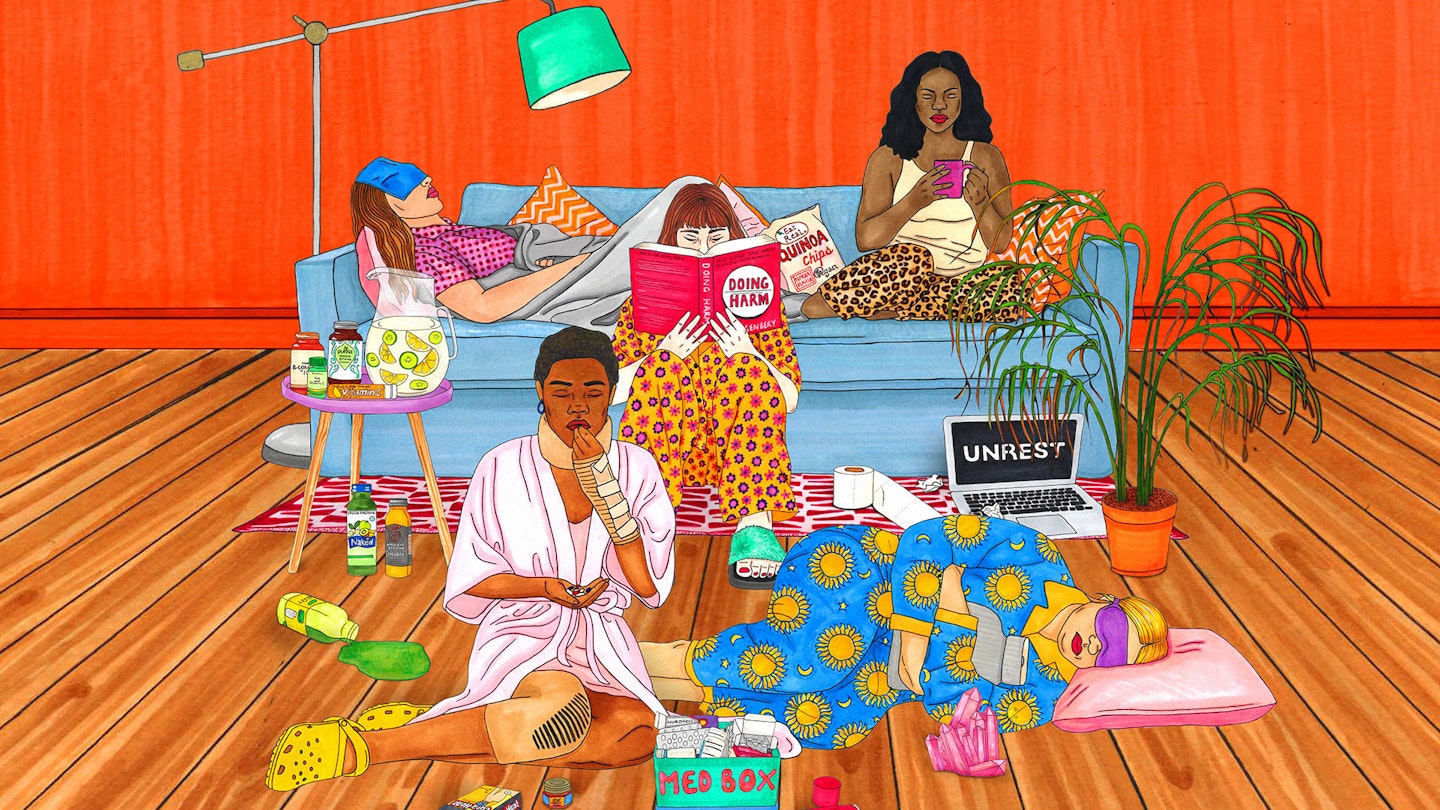As someone who lives with chronic illness, I have been ‘self-isolating’ for around five years. Like many people across the world right now, I know what it's like for your life to abruptly change, for your career to be put on hold, and your freedom to be taken away. And while everyone - from social media influencers to politicians – keeps reminding us that ‘we're all in this together,’ I can't help but feel like my experience - and the realities of the chronically ill and disabled community – is different to the able-bodied experience.
After contracting viral meningitis in 2013, I developed a widespread, chronic pain condition called fibromyalgia, Ehlers-Danlos (where my connective tissues and joints are unstable and I experience digestive problems) and Postural Tachycardia Syndrome (PoTS) – a condition that enables me to experience immense fatigue and feel dizzy whenever I stand. My pain has stopped me from achieveing the career I dreamed of, and although I enjoy being an illustrator{
Before COVID-19, there weren't any encouraging articles about how to survive isolation, nor were there the endless virtual resources which enable everyone to feel much more connected. They weren’t many campaigns, and no one was concerned about the mental health implications of being in isolation. The percentage of disabled and sick people who are housebound has always been alarmingly high, so where has the advice been for those people? It seems as though only now - when the healthy people are having to deal with the realities that the disabled community experience on a daily basis - that isolation and the importance of healthcare is a topic of conversation.
Throughout this whole experience of being unwell, I have felt that no one understands my loneliness. I have had friends who have said how jealous they are that I get to sit at home all day and do nothing. But what they don't realise is that no one wants a life without purpose, no one wants to be in pain all the time. What I hope that this period of isolation will show people is how difficult it is to not be able to pop out to the coffee shop or quickly meet a friend after work. I hope that people will relish those quality times with their friends. Those meaningful hugs and wine-fuelled chats where you stay up all-night talking. I hope it will make people not take the little things for granted.
Call your sick friends because they're probably not feeling the same way that you are. Most of us are experiencing pain every day, a lot of us are unable to work or move. Like me, many of us will not be able to distract ourselves from the global uncertainty and our conditions because we are often unable to do the things that able-bodied people can do like watch TV, read, bake or create. I imagine a lot of us, like me, are experiencing PTSD from traumatic times when they were first ill and truly alone. For me, I find it triggering seeing the countless memes that joke and complain about isolation when that’s my way of life.
We've all been reassured that this COVID crisis will end someday and I understand that this is comforting. I have too battled the feeling of the unknown. I would stay up at night just pray and beg that one day I'd recover. I would always think that If I knew there was an end date, I knew I'd be fine because I'd have that reassurance that it would be over some day. Now I know it is never going to be over. This is the reality of for many of us and I just hope that when the COVID crisis is all over, we do not get left behind.
We need able bodied people to remember what it was like when they were experiencing unemployment, when they were alone, when they were worried and scared for their health. Most crucially, they mustn’t forget what it was like when they were not in control of their lives because that’s what illness does. Let's not stop all this accessibility that we've given to everyone in terms of working from home and virtual resources. I hope that the crisis will mean that friends and allies will visit us when they're rejoicing about their freedom. I hope that it will no longer be us screaming about what we deserve and how society treats us. I hope that we will be prioritised when it comes to mainstream activism and we will be given more of a space.
READ MORE: Selma Blair Challenges Disability Stereotypes With 'Disabled Looks Like Me' T-Shirt
